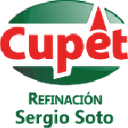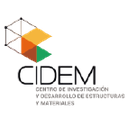Executive Secretary

IX Simposio Internacional de Química y Ciencias Farmaceúticas
SIQF 2025
XIV Conferencia “La ingeniería química: desarrollo, potencialidades y sus retos” y VI Simposio Internacional de “Seguridad tecnológica y ambiental”
Problemática:
La introducción de la producción de etanol de segunda generación enfrenta elevados gastos en el pretramiento del bagazo u otro residuo agrícola, lo que dificulta su uso eficiente como materia prima. Estos costos afectan la viabilidad económica del proceso y limitan el aprovechamiento de recursos renovables para generar biocombustibles.
Objetivo: Proponer alternativas para obtener productos
comercializables a partir de la hidrólisis ácida, etapa clave en el proceso de
producción de etanol de segunda generación, enfocándose en la separación y
aprovechamiento de la xilosa obtenida.
Metodología: El
estudio se basó en evaluar distintas alternativas
tecnológicas para la obtención de Xilosa y Xilitol, realizando un análisis técnico-económico orientado a su
implementación en una instalación industrial. Se exploraron estrategias para
minimizar los riesgos de la incertidumbre tecnológica, considerando estas
producciones como primera etapa en la fabricación de etanol de segunda
generación.
Resultados y discusión: La extracción del jugo de los filtros permite incrementar tanto el valor como la variedad de productos obtenidos, al aumentar la disponibilidad de bagazo como materia prima. Esto favorece el balance y la eficiencia en la producción de derivados, mejorando la rentabilidad del proceso de etanol de segunda generación.
Conclusiones: Se identificaron tecnologías disponibles y viables tanto a nivel de laboratorio como a escala industrial en el contexto cubano. La gestión y manejo adecuados del jugo de los filtros, combinados con la producción integrada de xilitol y etanol de segunda generación, permiten optimizar los resultados económicos y reducir el riesgo inversionista.
Problematic: The introduction of second-generation ethanol production faces high expenses in breast pre-treatment or other agricultural waste, which makes its efficient use as a raw material difficult. These costs affect the economic viability of the process and limit the use of renewable resources to generate sustainable biofuels.
Objective: To propose alternatives to obtain commercializable products from acidic hydrolysis, a key stage in the second-generation ethanol production process, focusing on the separation and use of the xylose obtained. In this way, it seeks to improve the profitability and efficiency of the pretreatment of the bagasse and other agricultural waste used as raw material.
Methodology: The study was based on evaluating different technological alternatives
for obtaining xylose and xylitol, makin technical-economic analysis oriented to
its implementation in an industrial plant. Strategies were explored to minimize
risks related to technological uncertainty, considering these productions as
initial stages in the second-generation ethanol manufacturing process.
Sobre el ponente

Ing Jennifer Álvarez García

Discussion


 Oro
Oro
 Oro
Oro
 Plata
Plata
 Plata
Plata